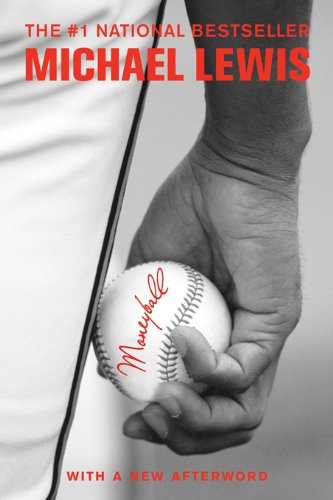

This article is an excerpt from the Shortform summary of "Moneyball" by Michael Lewis. Shortform has the world's best summaries of books you should be reading.
Like this article? Sign up for a free trial here .
Who was Jason Giambi on the Athletics? What did it mean when Jason Giambi left the Oakland a’s?
Jasson Giambi, Athletics star player and power-hitter, was one of the big talents on the Oakland Athletics. The loss of Jason Giambi from the A’s is what causes Billy Beane to think outside the box and consider groundbreaking new options, like Sabermetrics. Jason Giambi’s Athletics career is over. But the A’s are just getting started.
Replacing the Pieces of Jason Giambi
The loss of Giambi to the Yankees will be hard to replace. Although defensively weak as a first baseman, Jason Giambi’s Athletics performance proves he is a highly efficient scorer at the plate, a run-creating machine with a stellar on-base percentage of .477. He is the rare player, like Nick Swisher, on whom the sabermetricians and the old baseball guard can agree. But even still, Beane and DePodesta know that Jason Giambi’s Athletics status isn’t irreplaceable.
For the team is simply the sum of its parts. And while certain star players obviously contribute more runs than others, their output can be replicated. The production of a Jason Giambi Athletics player might not be easily replaced by another single player, but it can be replaced by a combination of other players, each of whom can do their part to fill in the gap left by his departure.
They don’t need to find the total package in a new player—they just need to find a fraction of that package, which will form part of the whole when joined with other players. They aren’t looking for the next Jason Giambi Athletics star, nor, frankly, can they afford to. They need to find the parts of Giambi, which can be obtained for far less.
The players Oakland loses after the 2001 season (including Giambi) have an average on-base percentage of .364. The task before Billy Beane is thus to find new players who can man the former players’ field positions competently, while collectively contributing an on-base percentage 30 points higher than the league average, thus filling Jason Giambi’s A’s gap. Surprisingly, Billy is able to find such players for next to nothing—a testament to how most major league clubs discount the importance of on-base percentage.
The players brought in to replace the lost offense are catcher Scott Hatteberg, outfielder David Justice, and first baseman Jeremy Giambi (Jason’s younger brother). These are players whom most of the rest of the league has written off as inadequate or defective, which, of course, is why the A’s are able to acquire them so easily.
Jason Giambi Returns to Oakland
On Wednesday, April 24, 2002, the A’s are hosting the Yankees. The game makes for a compelling story, as it is Jason Giambi’s Oakland return home to the team he spurned. While the fans jeer him and brandish signs labeling him a “Sellout” and “Traitor,” the A’s front office sees the game as an interesting experiment, a test of their sabermetric principles.
DePodesta, ever calm and calculating, makes the point that focusing on the results of any one game in a 162-game season is shortsighted. He argues that the process of how teams play games and accumulate runs matters far more than the results of individual games. Everyone else does the opposite: making decisions based on outcomes rather than processes. If a team maintains their discipline and consistently gets on base, they are likely to win more games over the course of a long season. But it’s impossible to completely remove the element of luck from baseball, and random, unexpected events in a single game can always overwhelm probability.
Sure enough, the Yankees roar out to an early 5-0 lead. Billy Beane, for all his focus on long-term results, is still highly emotional when it comes to baseball. His frustration and anxiety become too much to bear and he departs the stadium. This is why he seldom watches the games in real-time: he does not want his player decisions to be influenced by the outcomes of single games and single plays.
Although he does criticize individual player decisions in the heat of the moment (derisively labeling shortstop Miguel Tejada as “Mr. Swing at Everything” when he steps up to the plate during this game), he does not want to fall prey to the scout’s fallacy of judging players based on statistically insignificant sample sizes.
The game is a test of Oakland’s new acquisitions of Justice, Hatteberg, and the younger Giambi. The 36-year-old Justice, for instance, is written off by other teams as too old. Despite this, he boasts a high on-base percentage and excels at drawing walks. This unglamorous style of play seldom makes the highlight reels on ESPN, but it contributes significantly to helping teams win games, which is why Oakland acquires him. Sure enough, Justice’s patience at the plate yields results during the game, earning him a walk which leads to a run that cuts the Yankee lead to 5-4.
The next batter up is Jeremy Giambi, believed by many around the league to be too slow to succeed in the majors. But he does have an above-average on-base percentage, derived largely from his patience and ability to wear pitchers out, which ultimately draws walks. And Giambi, to his credit and the crowd’s delight, draws a walk during this at bat, bringing home the tying run for the A’s. The team’s methodical approach appears to be yielding fruit.
Although a run of bad luck in the final innings (and some questionable calls from the umpire) cause the A’s to lose this game to the Yankees by a score of 8-5, the team is clearly competitive. And although it’s only one game, the parts assembled by Billy Beane clearly appear to be working as intended.
The loss of Jason Giambi from Oakland is, at first, devastating. But the end of Jason Giambi’s A’s career doesn’t mean the A’s are done. In fact, Jason Giambi’s Oakland return with the Yankees only boosts Billy Beane’s confidence in Sabermetrics.

———End of Preview———
Like what you just read? Read the rest of the world's best summary of Michael Lewis's "Moneyball" at Shortform .
Here's what you'll find in our full Moneyball summary :
- How Billy Beane first flamed out as a baseball player before becoming a general manager
- The unconventional methods the Athletics used to recruit undervalued players
- How Sabermetrics influences American baseball today





